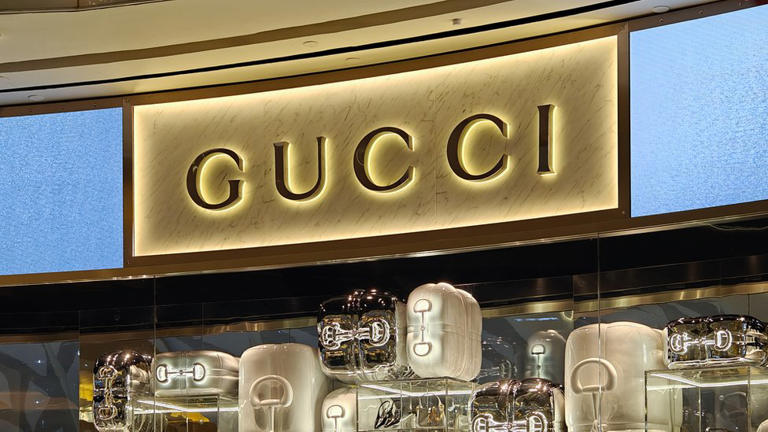The luxury fashion industry is renowned for its ability to capture shifts in consumer sentiment and economic trends, often serving as a barometer of broader market dynamics. In this landscape, the contrasting performances of major players like Gucci, LVMH, and Hermès provide valuable insights into the sector’s resilience and vulnerabilities.
Gucci, an iconic brand within the Kering conglomerate, finds itself navigating challenging waters in the first quarter of the year, with sales projected to decline by a notable 20%. This downturn is primarily attributed to sluggish performance in the Asia-Pacific region, particularly in China, a critical market for luxury fashion. As a significant portion of Gucci’s revenue stems from Chinese consumers, the brand is acutely sensitive to fluctuations in the Chinese economy and consumer spending habits.
Meanwhile, competitors such as LVMH and Hermès have exhibited remarkable resilience despite prevailing economic uncertainties. LVMH’s expansive portfolio, which encompasses prestigious labels like Louis Vuitton and Moët & Chandon, has contributed to its robust performance. Similarly, Hermès has achieved record-breaking sales figures and announced generous bonuses for its global workforce, underscoring its enduring appeal and strong financial position.
The divergence in outcomes underscores the importance of brand positioning and target demographics within the luxury market. Gucci’s allure to younger, trend-conscious consumers may render it more susceptible to economic downturns compared to its more established counterparts. Recognizing the need for strategic revitalization, Kering recently implemented leadership changes at Gucci, appointing a new CEO and creative director to steer the brand’s direction. The launch of the Ancora collection under this new creative vision has garnered positive feedback, suggesting potential avenues for rejuvenation and growth.
As the luxury landscape continues to evolve, companies like Kering must remain agile and innovative to navigate shifting consumer preferences, economic fluctuations, and competitive pressures. Adaptability, creativity, and a deep understanding of consumer behavior will be crucial for sustaining relevance and driving long-term success in this dynamic and ever-changing industry.
